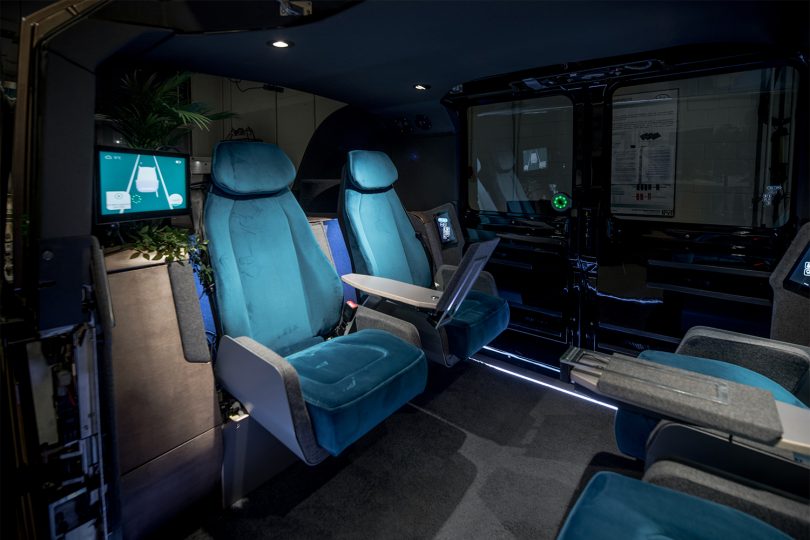Parcel delivery by driverless fleet A short portrait of Yannick Scherr from the Research Training Group 1931 "SocialCars"
The Research Training Group 1931 “SocialCars” in the Core Research Area “Future City” of Technische Universität Braunschweig investigates new methods and applications of cooperative traffic management: a control of traffic in which social and individual interests are given equal consideration. Yannick Scherr is one of the PhDs in the Research Training Group. “Service Network Design with Mixed Autonomous Fleets” is the name of his research project. We introduce Yannick Scherr in a short portrait.

PhD Yannick Scherr during his research stay at the Institute for Information Systems and Supply Chain Management at Loyola University Chicago. Picture credits: Yannick Scherr/TU Braunschweig
Who are you and what is your research topic?
My name is Yannick Scherr and I have been a research assistant at the Institute for Business Information Systems, Decision Support Group, for three years. Within the framework of the SocialCars Research Training Group, I am researching concepts for the urban transport of goods with mixed-autonomous fleets.
Which research question are you working on?
I am investigating the use of driverless delivery vehicles that can move autonomously in safe areas of the city and are dependent on driving in platoons in other traffic. For the logistics service provider, this results in an optimization problem at the tactical planning level.
What inspires you about your research?
I am excited about the opportunity to work on questions that could be relevant in the future. Working with models and methods of mathematical optimization fascinates me and is always challenging.
Why is your topic relevant to the Future City?
A considerable proportion of urban traffic can be traced back to commercial fleets. In addition, delivery traffic in particular impairs the quality of life in cities, for example through parking in public spaces or noise emissions. At the same time, the logistics sector is expected to play a pioneering role in the field of driverless applications. My research is concerned with a possible concept of how these can be applied. From this, conclusions can be drawn about the future use of urban infrastructure and urban planning adjustments can be initiated.
What is special about participating in the Research Training Group “SocialCars – cooperative (de)centralized traffic management”?
In research, a topic can be examined in almost any depth. The overall goal of the Research Training Group and especially the perspectives from the other participating departments help to maintain a somewhat broader, cross-thematic view. What I find particularly special about SocialCars is the regular exchange and constructive interaction between the participants.

